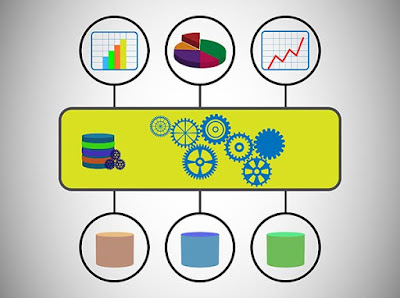Key Guidelines to Drive a Centralized Data Plan with Master Data Management Tools
Having a centralized data
strategy allows a business enterprise to completely make use of data and
analytics and master
data management tools.
To make this happen your enterprise
must recognize, amalgamate and manage multiple sources of data, create correct
analysis models to predict and optimize results and have the determination to change
the business enterprise to know how to leverage and change the data and
analytics models into decisions that improve business outcome.
Besides that, a few conditions assist
evidently define the strategy to make use of data and analytics in a right way.
Scroll below the fruitful guidelines on the right approach to do that.
Explore the Key
Guidelines to Drive a Centralized Data Plan with Master Data Management Tools:
·
Understand Your
Data Landscape:
All business enterprises struggle with the massive
growth in data volumes and dynamic business landscapes which change constantly.
The massive amount of structured and unstructured data compels business owners
to rethink about the strategies to efficiently manage the data in the best
possible manner to get a competitive advantage while conforming to regulatory needs.
One of the
biggest issues that companies face is to find out all the data sources or data
silos such as ERPs, CRMs, excel spreadsheets, legacy systems etc., which are spreaded
across your company. Data silos arise in business enterprises because its different
organizational units have set their own priorities, duties and objectives.
Due to the
absence of repeatable processes to access and use the data gathered, your
different teams often waste a lot of time working on the same data issues repeatedly.
So, it is very important to understand your data landscape to manage it
effectively with the help of master
data management software.
- Make a Unified Place for Your Data:
Generating a centralized unified version of
the facts around your data by using MDM tools will assist you resolve many issues.
With the advanced MDM tools by the best mdm
providers, you can effectively manage, categorize, localize, centralize, systematize
and enrich master data as per your business requirements of the sales,
marketing and operational plans of your business enterprise.
Master data can be
converted into product, supplier, location, customer and asset information, besides
any other information sources which drives your business. The resourceful
management of master data in a central repository gives you a single
authoritative view of information and reduces expensive inefficiencies sourced
by the data silos.
The latest MDM tools
support your business initiatives by identifying, connecting and syndicating the
information across the products, customers, employees, suppliers, digital
assets, stores/locations etc.
Users can rest
assured about the data quality and reliability while considerably speeding up
the insight process, which enables the decision makers to have faith in the
data and insights they find adequate to base important business decisions on
it.
- Accurate Data Governance:
For extracting maximum value from your data, you
need a powerful and accurate data governance program, which helps you to build
and manage data like a strategic business asset. The success of your data
governance program depends on a strong data integration infrastructure.
This is important
to enable the effective automation, scalability and management of your data
governance program. It needs the implementation of the key policies and
processes, version control and authorizations along with integrated workflows
and business regulations for maintaining the accurateness and answerability of
your information.
A vital aspect
of having accurate data governance is to build right teams and make use of role-based
security and access benefits in your central data repository. Having your data
in place, you reduce the risk of getting the wrong people access the wrong
information and protects your data quality through giving editing and viewing
rights adapted with different user profiles within your system.
- Never Get Trapped in Traditional Data Ideas:
The data universe has evolved
massively in the past few years. The massive growth of information has speeded
up the opportunities to gain insights through blending data in new approaches.
Find out how this
can be done. With the amplified data quality and data volume, business enterprises
can acquire more panoramic and granular views on their business atmosphere and
use it to enhance the customer experience, operational procedures and business
strategies.
Business
enterprises can evaluate customer expenditure patterns and determine who
visits. They can also make use of data from social media such as interactions,
impressions and likes for predicting either sales of specific commodities or
seasonal hikes. Just imagine what you can do if you have the right information.
- Excavate More Value Out of Your Data By Monetization:
Finding out new creative
approaches of putting the current data into good use is not enough. Your business
enterprise must understand and have faith on the big data models. If your
company’s existing culture, abilities and rising analytics are not aligned with
how it essentially takes decisions or it fails to deliver a clear approach of
realizing business objectives then, data analytics will not work.
The front line
employees and managers must understand in what ways the data can work wonders for
them. Your master data management tools
must be relevant to your business. Managers require transparent techniques to
use the new models and algorithms.
Terabytes of
data and complex modeling are necessary to hone marketing, risk management and
operations. If your business managers cannot see how it will help them to do
their jobs better then, they will not use them. Lastly, irrespective of their simplicity
of execution and deployment, nearly all business enterprises require upgrading
their analytical skills and knowledge.
For making
analytics an integral part of everyday operations, managers must look them as
being central to solving issues and recognizing opportunities. The efforts necessary
will differ depending on the company objectives and timeline.
So, have full control over your
data with the latest master
data management software and make your data work for you effectively and
bring even more value to your business.









Comments
Post a Comment